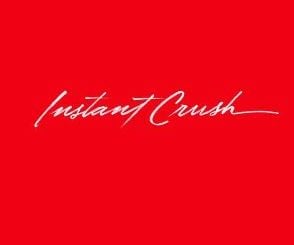Glass by Julian Casablancas Lyrics Meaning – Unveiling the Veil of Vulnerability
Lyrics
I’m not sad, I understand that’s how it goes
Take it easy, there’s no time to be mad
That’s their job, blood on their teeth, death on their mind
Pretty baby, please just get out of the way, where it’s safe
Eyes will follow you, weapons can’t break through
Tears will swallow you, they all can see right through
Bulletproof glass
Bulletproof glass
Bulletproof
You’re in trouble now
But who knows?
But who knows?
Please don’t deceive me, I’m just so easily fooled
But there’s some things they do not want the answers to
Don’t want to bring all that up, but they keep leaving it out
What to do?
We’ll just let it be until they all need
Bulletproof glass
Bulletproof glass
Bulletproof
You’re in trouble now
But who knows?
But who knows?
If you want to know somebody, might take a quick look at their best friends
Diamonds are hers, a dog is his
You can lie to yourself, but don’t lie to me
It’s what they want
Dominance and loyalty, romance and security
Stay behind
Bulletproof glass
Bulletproof glass
Amidst the chaotic symphony of modern rock, Julian Casablancas’s ‘Glass’ emerges as a perplexing yet profoundly introspective track that seems to transcend the very era it originates from. As the frontman for The Strokes, Casablancas has often donned the cap of a lyrical conjurer—spinning narratives that mesh the personal with the universal in seamless fashion.
Delving into ‘Glass,’ one is tantalized by the push and pull of its apparent simplicity against the backdrop of its deeply embedded meanings. It’s a song that speaks volumes in the tremor of its verses and the audacity of its chorus, marrying vulnerability with the unspoken strength of a bulletproof facade.
The Tug of War between Apathy and Empathy
The opening lines, ‘I don’t believe it, I won’t believe it. I’m not sad, I understand that’s how it goes,’ craft a narrative of denial and reluctant acceptance. There is an almost stoic resignation to the ways of the world that Casablancas touches on—a sense of detachment that, while guarding the self against gloom, implies a larger sense of disillusionment.
Yet, through these very words, Casablancas also injects an underlying thread of empathy. He shrugs off personal sadness for the collective experience—acknowledging the wear and tear on the soul that comes from engaging with a world that values ‘blood on their teeth, death on their mind.’
A Portrait of Modern Paranoia
As the chorus echoes with the chant of ‘Bulletproof glass,’ we arrive at the central metaphor—a shield against dangers seen and unseen. The modern condition is rendered as a cycle of defense and offense, where being ‘in trouble now’ is perennial and uncertainty is a constant shadow.
Casablancas isn’t just serenading the individual here; he’s singing about societal fears, the relentless need for protection from incessant threats, and the invisible armor we don to face the slings and arrows of contemporary existence.
The Hidden Meaning Behind the Protective Barrier
While on the surface it may tout the merits of invulnerability, ‘Glass’ cleverly positions itself as a commentary on the insufficiency of walls we erect. ‘Eyes will follow you, weapons can’t break through. Tears will swallow you,’ the singer warns—a testament to the emotional breach that no material can thwart.
Bulletproof glass is a symbol, not just of physical security but of emotional guardedness, a barricade against vulnerability that, inevitably, isolates more than it defends. Through the prism of Casablancas’s voice, we are compelled to confront our own barriers and those imposed upon us by the architects of fear.
Society’s Selective Blinders – What They ‘Do Not Want’
Casablancas raises questions about selective ignorance in lines like, ‘There’s some things they do not want the answers to.’ Here he alludes to a broader culture of avoidance and the uncomfortable truths that society chooses to sidestep—in politics, personal relationships, and even self-reflection.
The song grapples with the collective decision to ‘let it be,’ an indictment of passive complicity. It’s a call to bear witness to the incomplete narratives fed to us and the silence around uncomfortable truths that, while left unacknowledged, define much of our public discourse.
Memorable Lines: ‘Diamonds are hers, a dog is his’
Amongst the most cryptic lines is the couplet comparing ‘diamonds’ with a ‘dog,’ which could hint at gender stereotypes, materialism, and the shallow badges of loyalty and affection that are paraded as tokens of love.
Casablancas might be unraveling the societal constructs of status and possession—how they are differently attributed and what they say about the ones we keep closest. It speaks volumes of the superficial values that often masquerade as the tenets of connection and trust.








